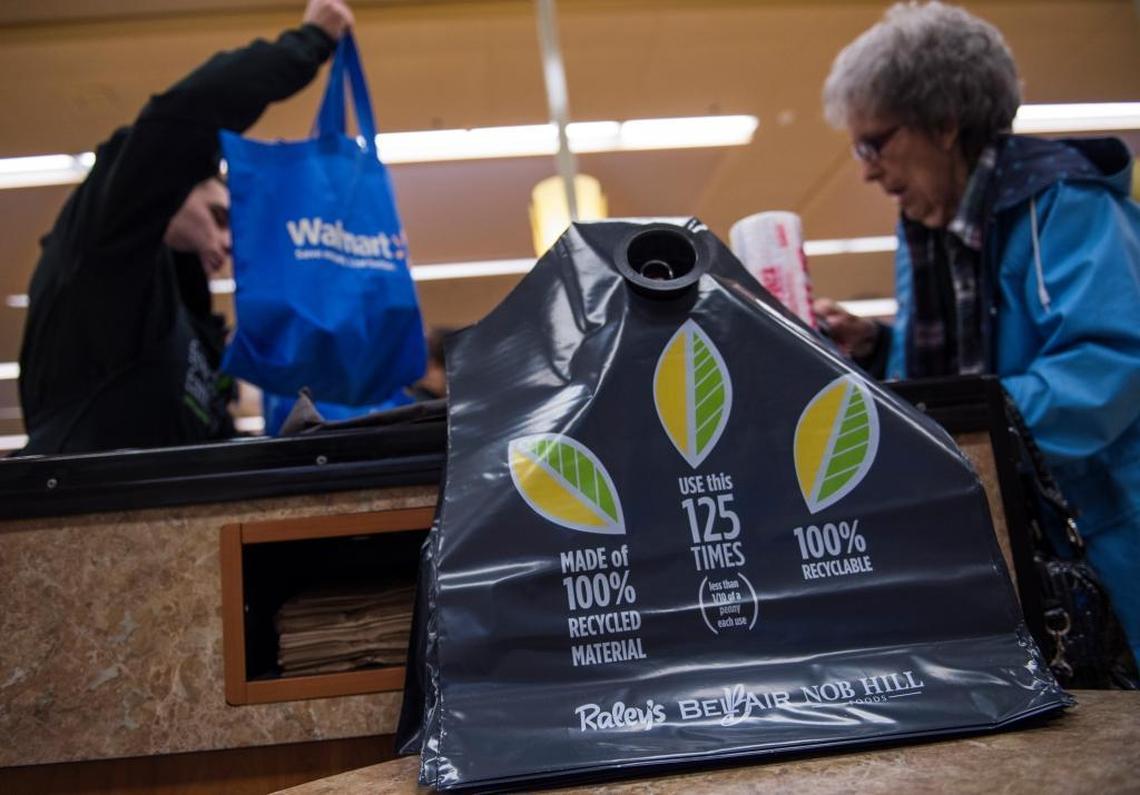California has settled lawsuits with four plastic bag producers that were found to be violating a 2014 law that forbids the sale of single-use plastic bags, and is suing three others for the same violations.
Over the past decade, plastic bags got thicker and more durable, and manufacturers argued they were recyclable in California, in accordance with the 2014 law, SB 270. However, a multi-year investigation by the attorney general’s office found that out of 69 recycling facilities interviewed by the state, only 2 said they accepted the bags, and even those two facilities couldn’t say whether they did actually recycle them.
“These bags generally end up in landfills or incinerators rather than getting recycled, and inevitably, some of them end up in our state’s waterways and other ecosystems,” said Attorney General Rob Bonta during a news conference Friday.
The lawsuits will result in the companies cumulatively paying $1.7 million in damages and an obligation to stop selling the bags in California. Bonta said the ruling aligns with a 2024 bill, SB 1053 by state Sen. Catherine Blakespear, D-Encinitas, that only allows stores to sell recycled paper bags at the register beginning January 1, 2026.
Despite the impending change, Bonta said it “doesn’t relieve these seven companies of their multi-year violations and accountability for the multiple years of violations of SB 270.”
The four manufacturers that settled with the AG’s office include the California-based Revolution Sustainable Solutions LLC, Metro Poly Corp. and PreZero US Packaging LLC, plus the Texas-based company Advance Polybag, Inc.. The AG has filed suit in San Francisco Superior Court up against three other manufacturers: Novolex Holdings LLC, Inteplast Group Corp., and Mettler Packaging LLC, all based out of state.
Bonta said labels all of the bags were misleading because they featured the “chasing arrows” symbol, which led consumers to believe they were recyclable.
“The only thing being recycled are the false claims of the manufacturers,” he said.
Blakespear’s bill passed with little fanfare in 2024, despite being opposed by a coalition of Republicans, and several plastic manufacturers. The Recyclable Plastic Bag Alliance warned the ban would trigger an increase in thin non-woven polypropylene, or NWPP, bags, which would lead to additional plastic usage.

